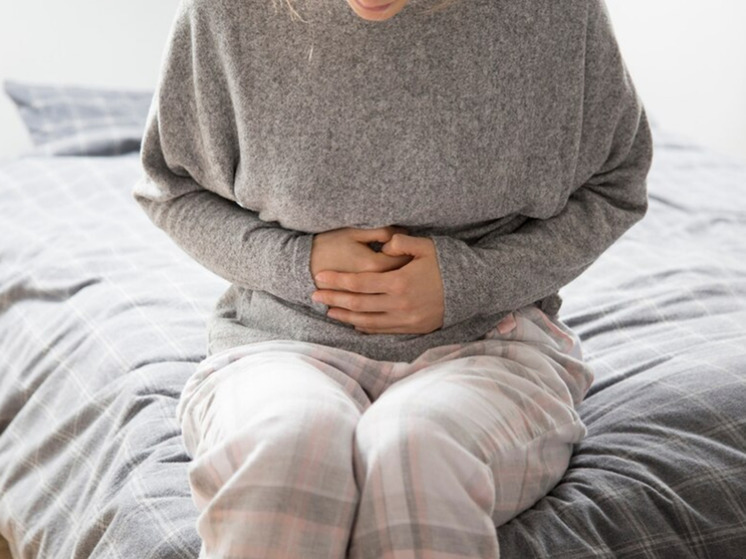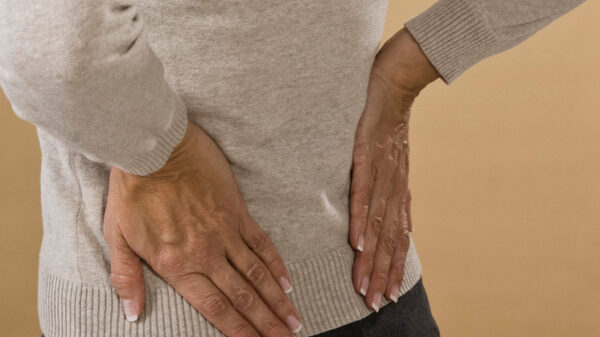A healthy lifestyle is the key
A healthy lifestyle may reduce your risk of developing irritable bowel syndrome (IBS), according to a new study. Middle-aged adults and older who were physically active, got enough sleep, ate a quality diet, moderated their alcohol intake or didn't smoke dropped their risk of developing gastrointestinal disorders by up to 42%, according to a study published Tuesday in the journal Gut.

People living with irritable bowel syndrome experience abdominal pain, bloating and bowel dysfunction, CNN tells CNN. The chronic condition can cause cramping, gas, and diarrhea or constipation, according to the Mayo Clinic.
This common disorder affects 5% to 10% of the world's population, or up to 1 in 10 people worldwide. The disorder's impact on the stomach and intestines, as well as mental well-being, is well known, but the cause of the condition is not fully understood, the study authors write.
A research team in Hong Kong found that the healthier lifestyles study participants followed, the greater the protection against developing IBS. Participants who engaged in one behavior had a 21% lower risk of developing IBS symptoms compared to those who engaged in neither, while those who engaged in two behaviors had a 36% lower risk. Those who performed three to five behaviors had a 42% lower risk.
“This suggests that lifestyle changes have the potential to be an effective strategy for the primary prevention of IBS,” said study co-author Vincent Chi-ho Cheung, a professor at the School of Public Health and Primary Health Care at the Chinese University of Hong Kong. “To our knowledge, our study is one of the first large-scale studies to demonstrate that a combination of a healthy lifestyle… can significantly reduce the risk of developing IBS.”.
Until now, most consensus reports on IBS have focused on diagnosis and treatment rather than prevention, he added.
According to the study, previous studies have linked individual unhealthy lifestyle factors to an increased risk of developing IBS, and the researchers wanted see if a combination of healthy factors helps prevent this disease.
The study involved 64,268 participants aged 37 to 73 who had not previously been diagnosed with the disorder, according to the UK Biobank, a large-scale biomedical database. After 12.6 years, there were 961 cases (1.5%) of IBS in the group, with those who did not adhere to a healthy lifestyle being at greatest risk of developing the disease.
The researchers defined a healthy lifestyle as maintaining a high level of vigorous physical activity, eating a high-quality, balanced diet daily, drinking moderate amounts of alcohol (5 to 15 grams) daily, sleeping seven to nine hours a night, and never smoking.
< p>When analyzing behaviors separately, the research team found that getting enough sleep each night had the greatest impact on reducing the risk of developing IBS, Chung said. People with high quality sleep have a 27% lower risk of developing the disorder compared to those who do not. Engaging in more intense physical activity reduced the risk by 17%, while quitting smoking reduced the risk by 14%.
The researchers also found that moderate alcohol consumption, when combined with the other four healthy lifestyle choices, led to greater reduction in the risk of developing IBS compared with complete abstinence from alcohol. The researchers found this to be a surprising result that warrants further study, Chung said.
«It's important for people to consider their own health when incorporating these findings into their daily lives,» Chung said. “For example, abstaining from alcohol can still be beneficial if it is consistent with personal choice, and older adults can engage in moderate levels of physical activity instead of vigorous exercise.”.
The research team grouped participants based on the number of behaviors they adopted, with those who engaged in three to five behaviors being grouped together to increase the sample size for analysis. The researchers said most of this group were younger and female, had a lower body mass index (BMI) and were less likely to have a family history of IBS.
“Research into developing strategies for primary prevention of IBS is important because so many people suffer from IBS, and most of them are women,” said Dr. Beverly Greenwood-Van Meerveld, professor of physiology at the University of Oklahoma Health Sciences Center. – Evidence from this large cohort suggests that lifestyle choices play a key role in the development of IBS.
The study did not include stress reduction as part of the lifestyle observed. Greenwood-Van Meerveld, who has studied the role of stress in the disorder, noted that this omission is surprising because stress has been studied as a factor that plays a significant role in IBS. Additionally, she said, the age group limitation is a concern because IBS often develops in early adulthood, but the current study included participants with an average age of 55.
“These measures are limited, but because the sample size is so large, they provide valuable information about what may reduce the likelihood of developing IBS in middle-aged and older adults,” said Dr. Margaret Heitkemper, professor of nursing and health informatics at the University of Washington and adjunct Professor of the Department of Gastroenterology. – As the authors note, IBS is a heterogeneous disease, and a number of additional factors may play a role.
Further research into the effect of quality sleep on preventing IBS is needed, the researchers said, as a sleep laboratory would provide more definitive evidence than self-reports of sleep at home, said Dr. Heitkemper, who has studied sleep in women with IBS.
Research has shown that maintaining a healthy lifestyle is important, Heitkemper said. And practicing good sleep hygiene, such as avoiding using electronic devices before bed and avoiding caffeine in the evening, will help people who are struggling to improve their sleep quality, she added.
“Your gut health should never be taken for granted, it must be protected,” says Greenwood-Van Meerveld. “My advice is to eat healthy and reduce your stress levels with daily stress-reducing tools such as meditation.”


























































Свежие комментарии